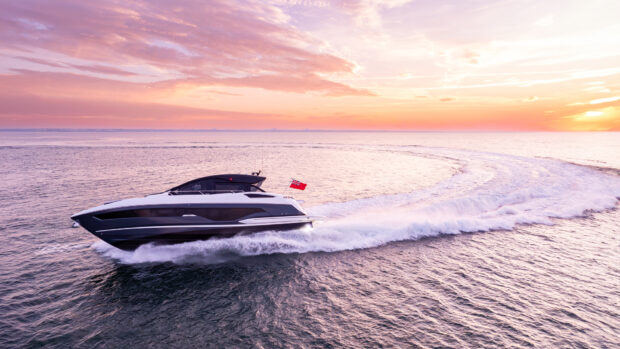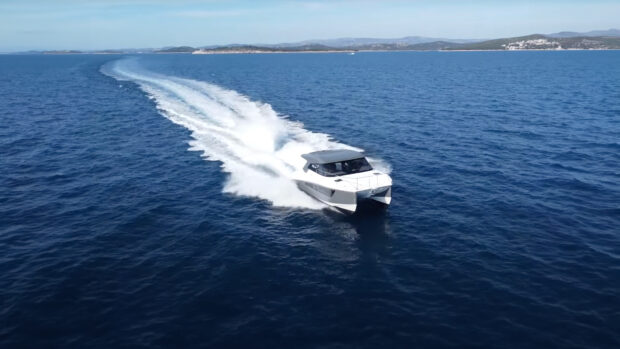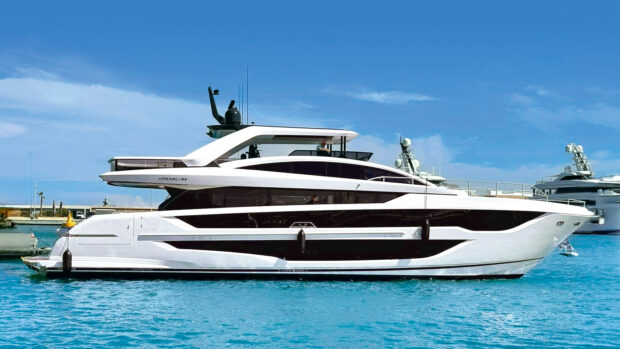Our detailed guide to European destinations.
EU member?
No.
Visas?
Yes. Issued on arrival in Turkey. £10 to be paid in crisp, new note form (they’re quite particular). No photo needed.
Ship’s papers
Ship’s registration papers.
Insurance certificate.
Ship’s radio licence.
Crew papers
Passports.
Skipper must have ICC.
Report to Customs?
Yes. Fly Q flag on entry. Enter at a port of entry see almanac or RYA C2 booklet. You will be issued with a transit log on payment of US$25 in sterling or other hard currency, or in Turkish lire if you have a receipt to show the money was changed legally. On the transit log will be listed crew and items on the boat. It’s valid for three months, then renewable. If any crew leaves you must note their departure in the log but if new crew arrive, a new log must be obtained. You should stick to the itinerary you have written in the log and produce the log whenever it’s requested.
Other regulations
You can be severely fined for pumping out toilets or other waste into the sea and it’s been reported that foreign boats come under particular scrutiny. You are not obliged to have holding tanks but if you do have them, go at least six miles offshore before you pump out. (There are no pump-out facilities onshore.)
Diesel
Fuel berths in most marinas. Available by small tanker in many harbours. Less easily obtainable in remote places.
Water
Readily available. Take a long hose. May be in short supply in summer.
Shore power 220V AC
Widely available in marinas. Occasionally in ports.
LPG
Equivalent may be available.
Camping Gaz
Ipragas, which fits Camping Gaz appliances, is readily available.
Berthing fees
Slightly less than UK in marinas. Harbours usually cheaper, sometimes free.
Currency
Turkish Lira (100 kurus). When exchanging currency, keep the receipts as proof that it has been exchanged legally. Unlimited foreign currency can be brought into Turkey.
Credit cards
Widely accepted. Cashpoints in most tourist-resort towns.
Eurocheques
Widely accepted.
Travellers cheques
Can be exchanged in banks.
Emergencies VHF
Coastguard monitor VHF Ch16 and send out patrol/rescue boats. They can also call upon the Turkish Navy.
Emergencies phone
Police 155
Ambulance 112
Fire 112
Pets?
Pets will need a certificate issued not more than 15 days before the animal’s entry into the country, stating its origin, that it is in good health and that it has been vaccinated against rabies. One cat and one dog only.
Dialling code to UK
0044 then the number, omitting the first 0.
Telephone boxes
Reasonably good telephone system. Use phonecards.
Weather forecasts
Nearby Greek coastal radio stations can be picked up. You can call the Turkish Coastguard (Sahil Guvenlik) for a forecast on Ch 16. Most speak English.
Trailing
Must have green card endorsed for both European and Asian parts of Turkey. Must buy Turkish third-party insurance at border. Any accident must be reported to police.
British Embassy
Sehit Ersan Caddesi 46/A, Cankaya (Ankara). Tel: 0090 312 455 3344. Visit www.britishembassy.org.tr r e-mail britembank@fco.gov.uk
Tourist office in UK
Turkish Tourist Office, 170-173, Piccadilly, London W1V 9DD. Tel: 020 7629 7771. Visit www.go2turkey.co.uk or e-mail info@go2turkey.co.uk
Charts and books
Admiralty charts. Turkish charts larger scale using Admiralty info.
Turkish Waters Pilot. Rod Heikell. Imray.
Mediterranean Almanac. Imray
www.ybw-books.com
Language
Turkish. Some German and English spoken in tourist areas.
September 2001









